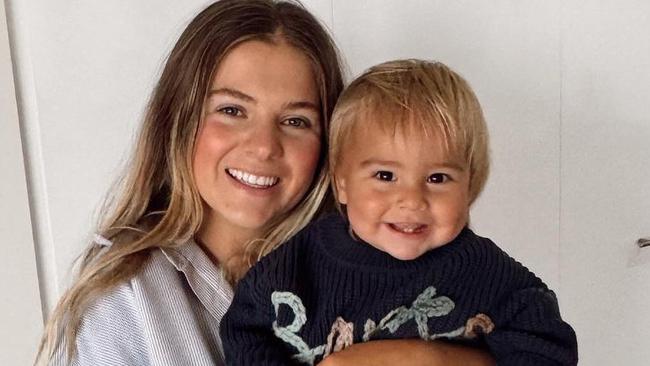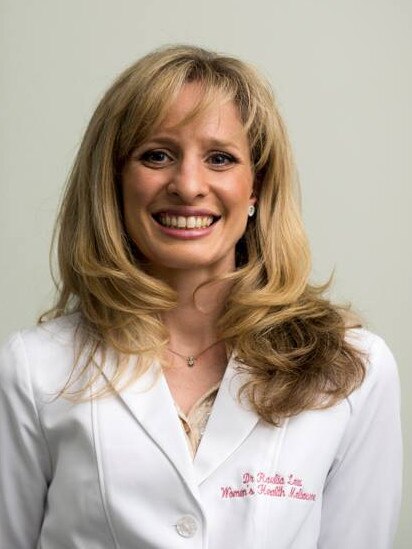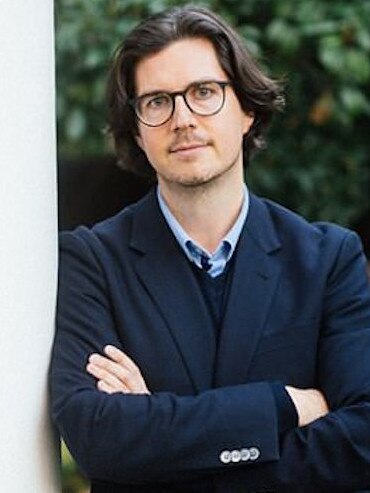Young Aussie mums claim mid-20s is the new ‘teen pregnancy’, sharing how they’ve been shamed
One of the happiest moments of Matilda Norton’s life was marred by judgmental looks and stunned statements – exposing an upsetting reality for young mums everywhere.

Lifestyle
Don't miss out on the headlines from Lifestyle. Followed categories will be added to My News.
“You’re damned if you do and damned if you don’t.”
It’s the global sentiment among women when it comes to if and when they choose to start a family in the ever-present glare of social stigma.
But as the average age of first-time mothers steadily increases in Australia, women in their 20s are bearing the brunt of mum age-shaming declaring 20-something “the new teen pregnancy”.
Soon-to-be mum-of-two Matilda Norton, 25, knows all too well the stares and sniggers that come with opting to start young, telling The Advertiser she’s often asked whether she’s “the mum or nanny” when out and about with her toddler Banks.
“It definitely does make you feel a bit embarrassed and awkward,” the marketing co-ordinator, who recently announced her second pregnancy, said.
“When I was first pregnant I found myself telling people ‘it was planned’ because I assumed they would think it was an accident.”


Ms Norton, who was 24 when she and fiance Jaden decided to have kids, singled out one hoity-toity shopping centre in Adelaide as “the worst” for reproachful glances.
“One place you do not want to go if you hate people staring at you is Burnside Village,” she told followers in a TikTok video.
Elaborating to The Advertiser, she said having grown up in the eastern suburbs, she “didn’t think anything of it going there pregnant” but was stunned by the icy reception.
“Obviously Burnside is a really affluent suburb, a lot of the mums and the families there have the white picket fence, the beautiful modern house,” she mused, adding they probably view the traditional “order” of marrying before children as the expected route to travel.
“Me having a baby at 24 doesn’t affect any of those mums at Burnside Village,” she added of the frustrating stigma – which she adds wasn’t the case overseas.
“My fiance is from Texas. In America, when we announced our pregnancy, there was absolutely no judgement, no questions about being young or anything,” she said.
While having children in your 20s was once considered the norm, according to a 2023 report from the Australian Institute of Health and Welfare (AIHW), Ms Norton is becoming part of the minority.
The report found an increase in the average age of first-time mothers from 28.4 years in 2011 to 29.7 years in 2021.
Ms Norton, who is engaged to Banks’ dad Jaden after being in a relationship for almost nine years, said she’d always envisaged being a young mum, falling pregnant before her two older sisters.
“I made sure that prior to having a baby, I had ticked a few boxes. I was finished my uni degree, I had worked for a few years in the field of my degree, and we had purchased a home and had a stable income,” she explained.

According to Ms Norton’s own doctors and fertility experts Australia-wide, she actually chose the optimal time for a risk-free pregnancy, with early to mid-20s once the age women were widely encouraged to conceive.
Nowadays, concerns around career progression or waiting for economic stability have typically driven the decision for many women to have children later.
In fact, fertility specialist Dr Raelia Lew argues “one of the main reasons for infertility treatment in Australia is advancing maternal age at the time of desired conception”.
Dr Lew is among the Aussie fertility experts encouraging women to freeze their eggs at a younger age if they wish to start a family in their 30s and beyond, arguing “the resource is better value the younger you are”.
“Fertility peaks in our teens and early 20s and declines significantly from the age of 30 onwards,” she explained.
“From 35 onwards, the decline in egg quality and number is more dramatic, to the point that 1 in 2 women over the age of 40 can no longer conceive using her own eggs, either naturally or through IVF.”

According to ABS data, however, there has been a significant increase in fertility rates for women in their late 30s.
From 1991 to 2022, the fertility rate of mothers aged 35-39 years has almost doubled from 36.0 to 69.3 births per 1000 women.
In contrast, the fertility rate of teenage mothers has reached its lowest of 6.8 births per 1000 women, from 22.1 births per 1000 women in 1991.
According to ABS head of demography Emily Walter: “The falling fertility rates of women aged under 30 years and the rising fertility rates of women in their thirties and early forties are consistent with women having their first and subsequent births later in life.”
Adelaide psychotherapist Nicholas Purcell attributed the shift in social stigma towards mid-20s mothers to myriad factors, including strengthened career focus and modern economic challenges.
He noted while motherhood was historically more accepted in early adulthood, a “modern understand and anxiety that personal readiness is key for raising children well” has shifted the “ideal age” to have children from a psychological viewpoint.
“As a society generally we now prioritise education and careers, delaying family plans,” Mr Purcell explained.
“With high interest rates and the rising cost of living, early parenthood is practically less feasible, therefore any younger person who seems to be ignoring the trend towards education and career or being financially-minded adults are judged and presumed to not being a fit and proper person to care for a child.”
He went on to say this “ageist stereotyping” hands unnecessary extra pressure to new mums, and could in turn lead to dangerous isolation.
“Regardless of age, we need to create non-judgmental and supportive environments for mothers.”

He stressed the importance of seeking advice from GPs, maternal health nurses and other mums rather than looking to social media for parenting “trends” and advice.
“Social media is mostly to blame for the increase in ‘mum shame’, since the decisions made by parents are regularly criticised and condemned there,” he said.
“People often believe they know the “right” way to be a parent, since there is so much information available online, and this generates even more judgement.”
Womens confidence and relationship coach Monica Sandercock, who runs Magnifient Mindset life coaching with her husband Mark, shared a similar sentiment.
Ms Sandercock pinned the rise in young mum criticism down to “women shaming women” more prevalent on social media than ever before.
“When women decide to have kids early, others who haven’t done that see it as irresponsible. They think ‘what have you got to show for yourself’ at that age to be a mum,” she observed.

“There is so much pressure to look and be perfect in every way these days … people judge more harshly than ever.”
Coupled with the weight of feeling looked down upon for their choices, not having other mid-20s mums with whom to bond will only result in further isolation for these women, she claimed.
“If there aren’t many mums at that age because most are in their mid-30s, it could be very isolating.”
Having experienced first hand a sense of isolation when she had kids of her own at the height of the 2008 global financial crisis, rendering her unable to afford petrol to attend mother’s groups, she said the impact can be dire.
“It was horrible,” Ms Sandercock, who had her now-15-year-old daughter when she was 30, recalled.
“It really led to a depressed state for me, almost PTSD. The isolation of not having the support network of other mums really impacted me, and because I wasn’t able to afford to get to pre-natal classes, I felt blocked out of those social circles after I had my daughter.”




